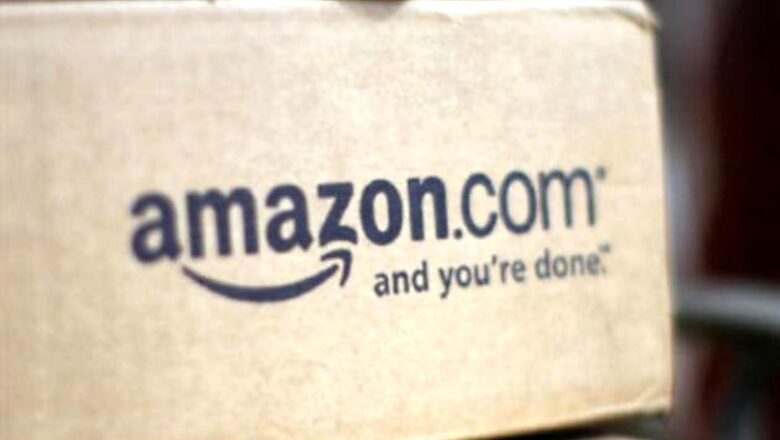
views
Las Vegas: An Amazon.com executive said Tuesday that the retailer has signed a deal with a Hollywood studio to sell movies that can be downloaded from an online "locker" system five studios have put together.
The extent of Amazon.com Inc.'s support of the UltraViolet online locker system is unclear. But the deal signals that Amazon is at least open to trying it. Studios are hopeful that UltraViolet is attractive enough to consumers that they keep buying movies rather than renting, which is less profitable for studios.
If Amazon fully joins the system, it would hugely boost UltraViolet's chance of becoming a mainstream technology. "We're excited about additional possibilities," said Bill Carr, executive vice president of digital media at Amazon.
Carr didn't name the studio. He was speaking on a panel about UltraViolet at the International Consumer Electronics Show, which opened Tuesday in Las Vegas. UltraViolet launched late last year. The idea is to let consumers play purchased movies, whether downloads or as physical DVDs, on any device. A customer who buys an UltraViolet-enabled DVD can enter a code online to make the movie available as a download to an iPhone or PC.
So far, there are only 19 UltraViolet-enabled discs on sale, and many people who have tried to take advantage of the online feature were dismayed at how difficult it was. For instance, playing a movie on an iPad requires the creation of two new online accounts.
Mitch Singer, president of the Digital Entertainment Content Ecosystem, the consortium of movie and consumer electronics companies that created UltraViolet, acknowledged the problems but said most have been fixed.
"We built this great house and we had a great foundation ... and in our excitement to move in, we kind of moved in and there was some carpentry left to be done," he said on the panel.
UltraViolet is set for mass adoption next holiday season, he said. Representatives of Sony Pictures Home Entertainment, Twentieth Century Fox Home Entertainment, Universal Studios Home Entertainment and Warner Home Video on the panel agreed. Among the major studios, only The Walt Disney Co. has not joined the consortium.
Analyst Jan Dawson of Ovum said the biggest challenge to UltraViolet comes from the top competitors in online retail for entertainment: Apple Inc. and Amazon.com Inc. Each of them maintains its own online "lockers" for purchases. If Amazon really commits to UltraViolet, that would be a "total game changer," Dawson said.
Hollywood wants badly for UltraViolet to succeed, and hopes it will lift sales of digital copies of movies, which in the U.S. rose 9 percent to just $554 million last year, a fraction of the $18 billion spent on home videos overall.
By allowing consumers to store and manage digital collections online with playback on multiple devices, studios are trying to ease concerns surrounding the limitations of digital movie ownership.
In further moves to demonstrate the growth of the system, UltraViolet's backers also announced several partnerships with consumer electronics companies that will enable playback on other devices.
Warner Bros.'s online movie service, Flixster, will be installed this year on certain Panasonic flat-panel TVs and Blu-ray players that connect to the Internet. Flixster gives consumers access to all of the movies they have stored in their UltraViolet lockers, even if they come from another participating studio.
Samsung also said that it plans this year to sell Blu-ray players that can recognize discs from a consumer's existing library and add them to their UltraViolet accounts for a nominal fee, using software developed by Flixster and Rovi Corp.
A Flixster spokesman said the cost of converting discs and which titles would be available from which studios would be announced in the coming months.

















Comments
0 comment